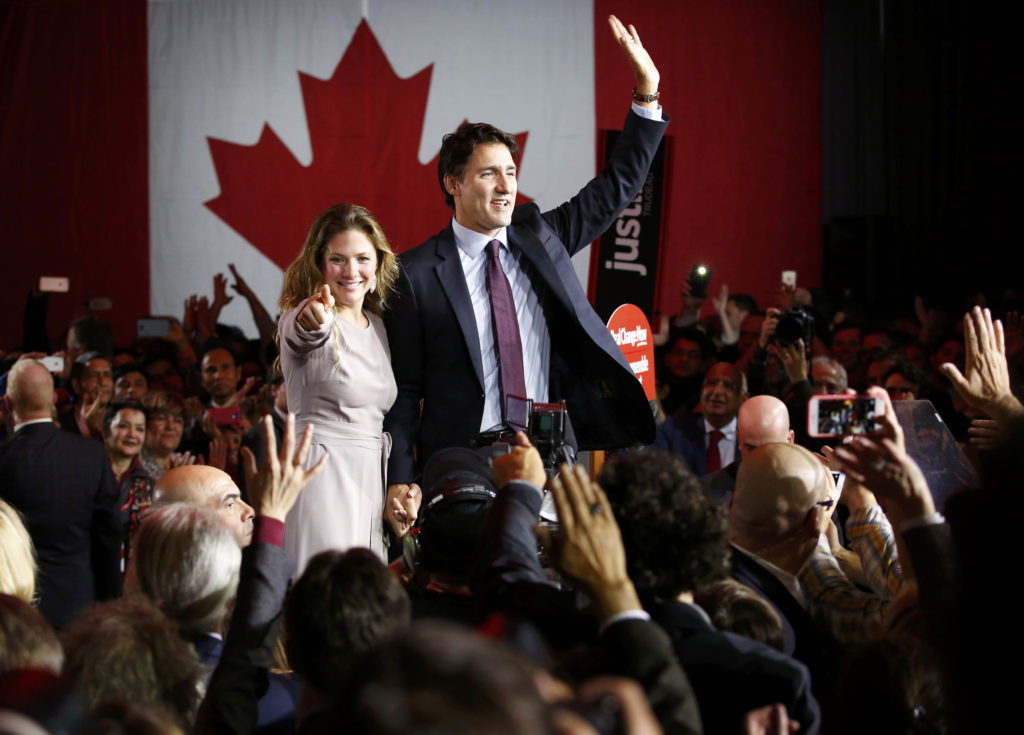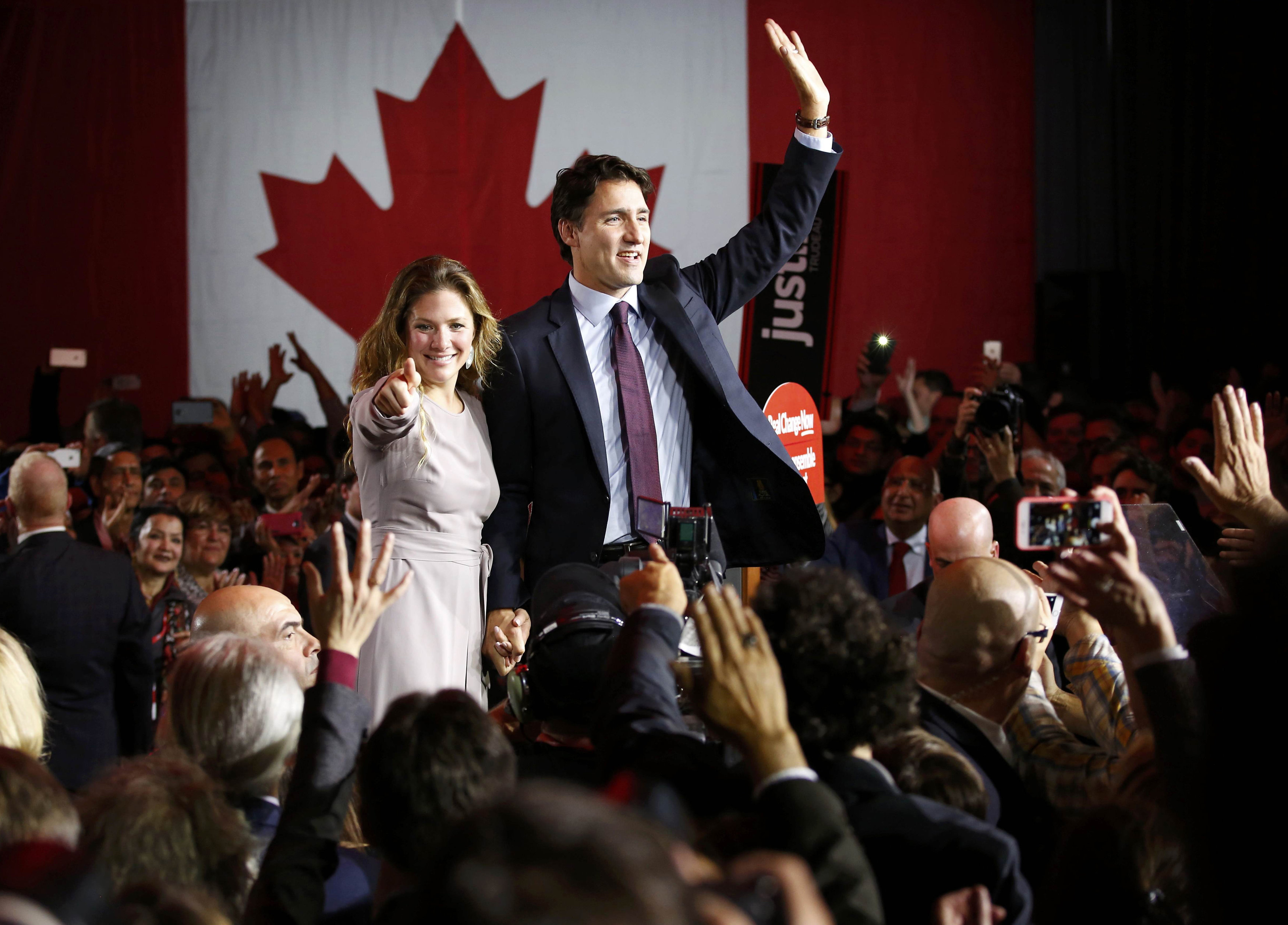
OTTAWA, Ontario (CNS) — They have written electoral guides, identified national issues, and invited Canadians to vote in the Oct. 19 federal elections, but one day after voters swept Justin Trudeau’s Liberal Party to a majority government, most Canadian churches had no official reaction.
Other Christian activists, however, had mixed reaction to the victory. Social conservatives expressed fears of expanded euthanasia and access to abortion and dangers to conscience rights. Those who want action on climate change, poverty and help for refugees hoped the new government would deliver on its promises in these areas.
The Canadian Conference of Catholic Bishops said no official reaction was expected.
“Usually, the CCCB does not comment electoral results. It is up to each bishop to decide whether or not he wishes to comment,” said Rene Laprise, director of communications.
The Canadian Council of Churches, which includes 25 Canadian Christian denominations, also said it would not publish an official declaration.
Many Canadian churches, including the Catholic Church, published electoral guides during Canada’s longest federal campaign — 78 days. Those guides invited Christians to ask their local candidates about national issues, such as protecting life from conception to natural death, climate change, poverty, refugees, and relations with the First Nations.
However, Campaign Life Coalition, the political arm of the pro-life movement, expressed concern the newly elected government “will push for more abortion access in Canada and around the world,” and will “refuse to invoke the notwithstanding clause to allow the democratic process to decide euthanasia and assisted-suicide legislation in Canada. “
The coalition “urges the Liberal caucus to refrain from passing a permissive euthanasia and assisted-suicide law that will surely put the lives of many vulnerable Canadians at risk,” said Campaign Life President Jim Hughes. “I also call on Trudeau to represent all Canadians and allow his MPs to vote their conscience on moral issues, issues that many of their constituents feel very strongly about.”
Ryan Worms, deputy communications director Development and Peace, the Canadian Catholic international development organization, said it had been pushing for the high level of participation witnessed at the polls. More than 68 percent of eligible Canadians voted, the highest turnout since 1993 and an increase of more than 11 percent over the 2011 elections.
“Canadians want to have a change and also to get involved in policies for the next four years,” he said.
On international development, Worms said he hoped the new government would “restore a stronger dialogue with civil society, with definite international development goals and strategies, and that we will also get back to a level of funding that will allow Canada to meet expectations. We hope the needs of the poorest in the global South will be at the center of the new government’s concerns.”
Worms noted the Liberal Party seemed more “open to dialogue” and willing “to find real strong solutions to fight climate change” and “to commit” to a binding agreement in the U.N. Climate Change Conference in Paris later this year.
He said Development and Peace hopes to find ways to work together with the Liberal government, but “we will not support or apply for any programs that will promote abortion or any other issue contrary to Catholic social teaching.”
Joe Gunn, executive director of Citizens for Public Justice, also expressed satisfaction at the number of Canadians who voted. The Liberals won a solid majority with 184 seats; the Conservatives won 99, the New Democratic Party 44, Bloc Quebecois 10, and the Green Party one.
Gunn said Canadians “are looking for some pretty immediate tone changes from their new majority government: the re-establishment of a functioning census, evidence-based decision-making with civil servants’ views able to be publicly expressed, no more demonization of refugees and those who work to help resettle them, and respect for women who wear traditional clothing from their culture or religion, for example.”
“Canadians massively decided that Justin is ready. Now we need to see if a Liberal government is,” he added,
Canadian Catholic News in Ottawa and Presence news agency in Montreal contributed to this story.






